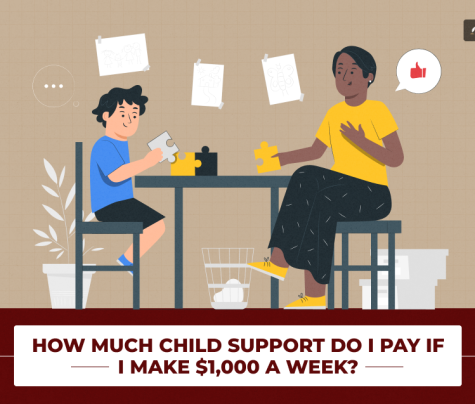
Have you ever wondered what is the difference between Legal Separation VS Divorce?
Those with problems in their marriage frequently want to split up with their partner. While some couples choose to go independently with a divorce, others prefer to separate legally. Some even question whether divorce and separation are the same. Comprehending the distinctions between a legal separation and a divorce is imperative.
A person may believe all love has been lost in an unhappy marriage if neither partner feels safe or loved. Many of us seek divorce or formal separation as a way out of a relationship like this.
While legal separation and divorce appear to serve the same purpose—namely, enabling married couples to pursue distinct paths from one another—they differ in a few ways.
The main distinctions between separation and divorce are outlined below to assist you in making an informed choice if you want to end your marriage but are still determining which procedure to follow. For expert guidance and legal counsel tailored to your specific situation, consulting with a family law attorney in California can provide invaluable insights and support as you navigate the difficulties of separation or divorce. You can also hire Divorce Lawyers In Charelston, to know more about both the situation and laws associated with them.
Legal Separation VS Divorce: What Do They Mean?
Divorce and legal separation are two official ways to dissolve a marriage. However, they have different practical ramifications and legal status. A court decree known as a legal separation permits a couple to live apart while continuing to be legally married.
Spouses can bargain over terms for spousal support, child custody, and property split during a formal separation. Contrarily, a divorce completely breaks the marriage and puts a stop to it legally.
Determining custody and visitation rights, allocating assets and debts, and setting alimony are all part of the divorce process. Legal separation can be a temporary or permanent agreement, depending on the couple’s circumstances, while divorce is a permanent arrangement. A team of professional Charleston Law lawyers can help in both cases, feel free to schedule a consultation call with them.
Legal Separation VS Divorce: Five Significant Differences You Must Know!
Are separation and divorce equivalent? Not at all. Legal separation, by definition, is an order from a court allowing a married couple to live apart without the supposed legal finality that comes with a divorce.
Another term for separation is an alternative to divorce that keeps one’s marriage recognized as legitimate and lawful.

The following is a list of the main distinctions regarding legal separation versus divorce.
1. Marital status
The primary distinction between separation and divorce is that should you choose to separate instead of divorce, your marital status remains unchanged. This is because, unlike a divorce, your marriage hasn’t ended yet.
The court may have granted you and your partner’s kid visitation and custody orders in addition to your separate living arrangements. You two are still husband and wife, though. This implies that you can only be married again after you get divorced and cannot get married again while separated.
2. Making choices on behalf of each other
Divorce and separation are not the same thing. In a separated partnership, partners are still each other’s next of kin and have the authority to make financial or medical decisions for one another.
This implies that your spouse still has the authority to make decisions that they believe are best for you and your family. This only gets altered at the formal dissolution of a marriage through divorce.
3. Advantages like health care
Healthcare and other social security benefits, such as retirement, unemployment insurance, pension insurance, etc., are retained in legal separation cases.
Social security is essential, especially for older people, to prevent poverty and shield middle-class individuals from the market’s swings.
When a couple decides to pursue a formal separation, all of these benefits are maintained; however, they usually stop when the couple decides to get a divorce. Couples are prevented from separating because of the distinction between separation and divorce.
4. Property rights
The right to retain marital property is a benefit of legal separation for both spouses but not a benefit of divorce.
This implies that if you and your spouse decide to separate, you can keep your property rights if the other passes away. Any such requests are, however, nullified by divorce, and the property is divided based on the circumstances of the marriage at the time and their relationship to it.
5. A chance for reconciliation
Couples can reconcile as long as they are still married despite their separation.
The primary distinction between a legal separation and a divorce is that the former may be temporary while the latter is not. Living apart might provide them more time to consider their choice and its potential impact on their future and family.
Being apart makes reconciliation much more accessible and increases the likelihood that a couple will eventually get past their disagreements and start over until they can no longer stand one another. However, a divorce leaves no opportunity for reconciliation; a divorcing couple must remarry to regain their marital perks.
When Should You Consider Legal Separation Over a Divorce?
Deciding between legal separation and divorce is a personal choice that depends on your unique circumstances.
A legal separation might be a better option than divorce if you’re unsure about ending the marriage entirely or if you need time to think things over.
Unlike divorce, legal separation allows you and your partner to live apart while remaining legally married. This can offer a “trial period” to see if separation helps resolve issues.
Legal separation can also make sense for financial or practical reasons. For instance, some couples choose it to maintain shared benefits, like health insurance, which may end after a divorce.
If one partner relies on the other for coverage, separation may help keep this essential support in place. Additionally, separation might offer tax advantages that divorcing would eliminate, especially if filing jointly benefits your financial situation.
Religious or moral beliefs may also impact your decision. Some people avoid divorce due to their faith or personal values, making legal separation a way to respect those beliefs while still living independently.
Finally, consider your emotional readiness. Divorce can be a permanent step, so if you’re feeling uncertain or believe reconciliation is possible, a legal separation provides time apart without the finality of divorce.
Every relationship is unique, so weighing these factors with a legal advisor can help ensure the best choice for your situation.
Make an Informed Choice!
In conclusion, a divorce ends your marriage, but a legal separation does not.
Legal separation vs divorce is a complex matter that requires careful consideration. Couples must assess their circumstances and decide which action is best for them.
Communication can be crucial in these circumstances, and teams must stick to their openness and truth principles.
Though it can also result in more severe emotional suffering and make the issues worse, separation can offer a chance to work on the relationship and resolve issues.
Determining which course of action is optimal for both parties requires careful consideration of the circumstances behind the breakup.
Read Also:
- Divorce Law: What Happens in a Divorce?
- Prenuptial Agreements: Is It REALLY Important or Just a Show?
- Family and Domestic Violence Lawyer: Know When You Need Them!











0 Reply
No comments yet.